Here's my thesis on the next decade of remote work and how it'll transform society. I think we're on the verge of the greatest migration in human history. It won't be nomads traveling around the world perpetually, but it will be millions of people relocating semi-permanently to places better fit for their way of living. In this thesis I'll argue why this will happen, how it might happen and how we can benefit from this movement.
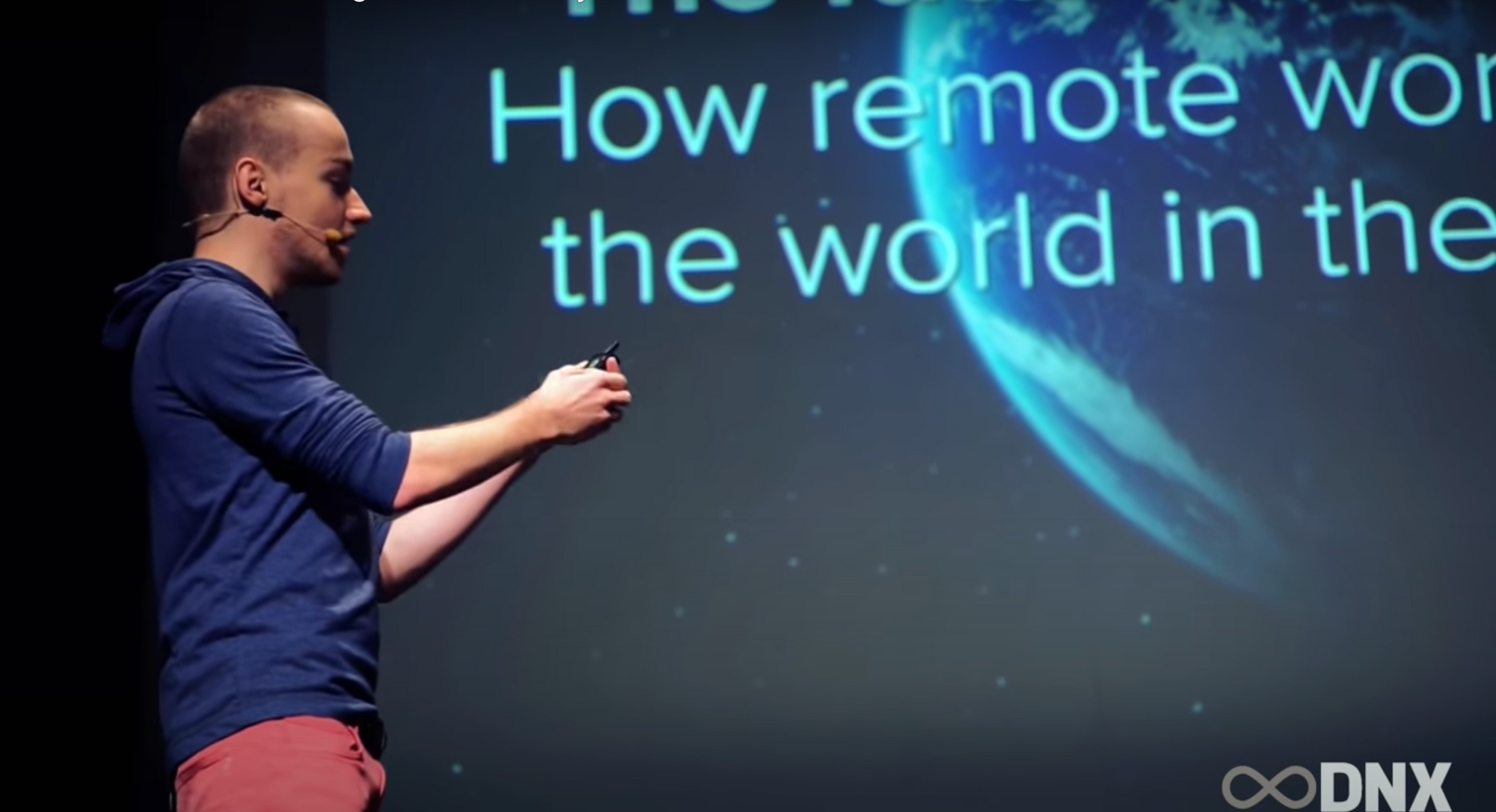
Five years ago I made a presentation about the future of remote work. This is the sequel to that. Back then I predicted there would be 1 billion digital nomads by 2035. I defined a nomad as a person who'd work remotely from a different country than their home country at least part of the year. My prediction was picked up by the press including The Economist and TechCrunch and people quit their jobs and started companies based on it.
By 2035 there could 1bn “location independent” workers
— The Economist (@TheEconomist) January 24, 2019
Supported by @Mishcon_de_Reya pic.twitter.com/yzp9zY5Mro
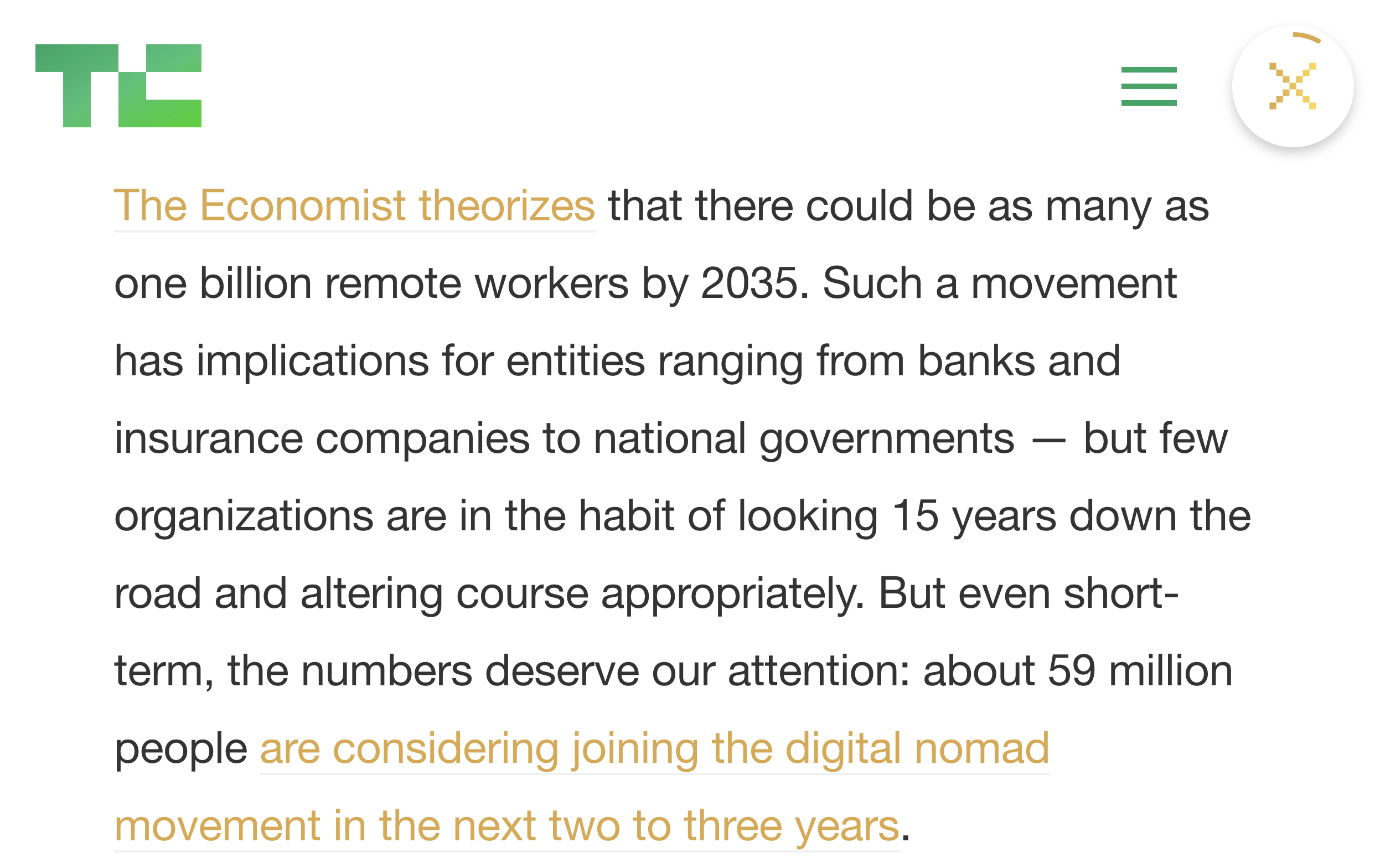
Even I was slightly skeptical about my own prediction though, I mean, it was quite out there. Would it actually happen so soon? What if remote work was just a fad? We would all figure out it didn't actually work and just go back to the office, I got push back for coming up with such an insane number and most people said I was exaggerating the growth of remote work.
That is, until 2020.
2020
As you know, 2020 changed everything.
With a global pandemic infecting and killing millions of people around the world, and offices being one of the major places where it spread, companies were forced to adopt remote work for the safety of their workers.
In the United States in February 2020, pre-pandemic, 8% of the workforce worked remotely. When the pandemic hit, that rose to 35% in May and bounced back to 24% in August. In Canada, in 2018 ~13% worked remotely, that grew to nearly 40% of the workforce working remotely in March 2020 [3,4]. In Europe, pre-pandemic, 5.4% of the workforce worked remotely, which rose to nearly 40% a result of the pandemic. We can assume there's growth in remote work in regions outside US/EU too.
In just a few months the amount of people working remotely ballooned to ~125 million people in North America (US, Canada) and Europe, or over 5 times the amount before the pandemic
During a pandemic, people are forced to work remotely though, it's not really a free choice. Will people want to remain doing so post-pandemic? A survey by IBM discovered the majority does in fact:
- 54% of people working remotely now would like to keep doing so after the pandemic
- 75% would like to work remotely at least occasionally
With remote work shooting into the mainstream, suddenly my prediction for 2035 didn't seem so crazy anymore.
The office is a legacy concept
Working remotely is uncovering something many of us already knew for a while: a lot of time is wasted by working from offices.
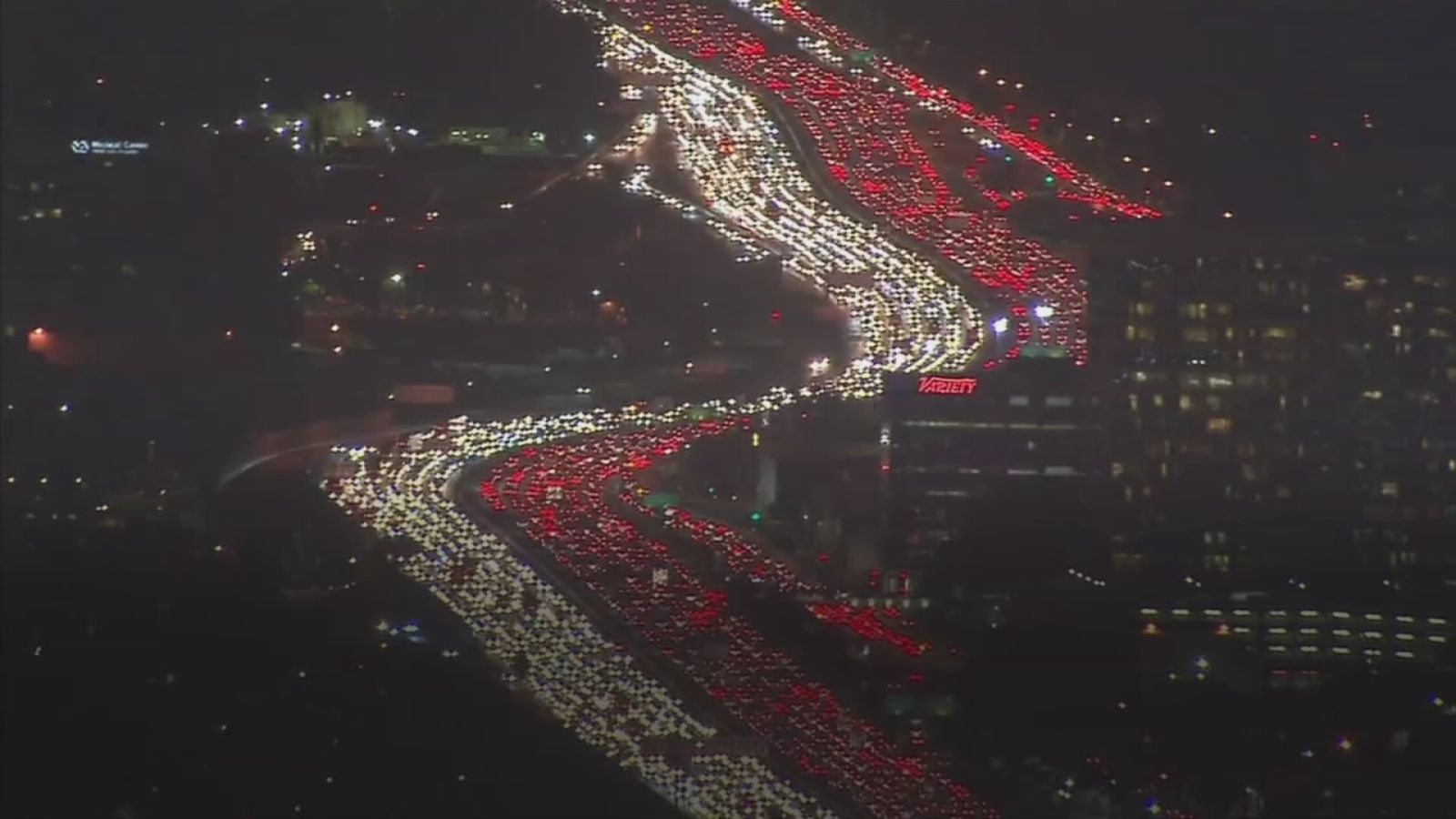
There's
- The daily commute to the office which in the U.S. averages to almost one hour per day.
- Meetings where people have to schedule to be in the same room together, when a lot of that work could happen asynchronously
- The interruptions from being in open plan offices
- Traveling to meet people face-to-face
If a regular work day in an office takes ~1 hour to commute, 9 hours of inefficient working, we have 8 hours to sleep, that leaves us with ~6 hours to do groceries, cooking, errands and spend our free time.
The benefits of working remotely
With remote work, we can remove many of the inefficiencies of traditional offices:
- The commute can be as short as seconds if you work from home and minutes if you work in a local coworking or cafe.
- Instead of meetings, we can switch to asynchronous communication.
- Instead of open plan offices that distract workers, we can create our own personally optimal workspaces. With people in coworking spaces, by ourselves in spaces likes this, or any other way that works for you.

- Instead of traveling in cars or planes for hours to meet people face-to-face, in most cases, a simple video call would suffice.
And while the sudden transition to working remotely this year has not been painless, once people have gotten used to remote work, they're generally more productive.
Remote work ♥️ deep work
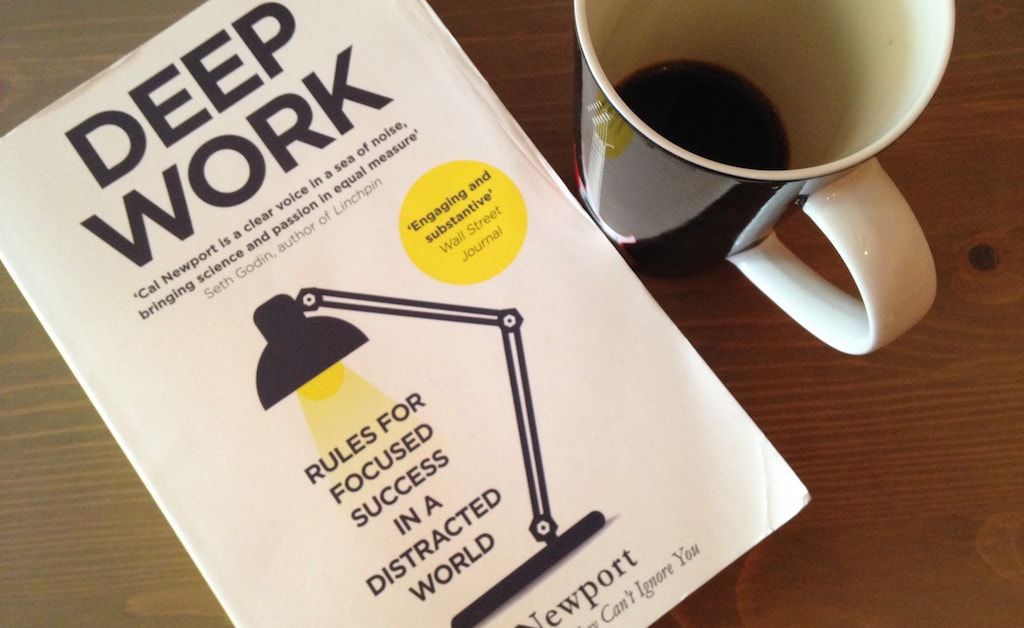
Cal Newport, best-selling author of Deep Work writes: “Three to four hours of continuous, undisturbed deep work each day is all it takes to see a transformational change in our productivity and our lives"
Remote work seems like a perfect match for deep work. If we can optimize our own working conditions, which is the freedom remote work now offers us, we may be able to reduce the work day to just four hours of deep work.
That gives us 8 hours of sleep, 0 hours of commuting, 4 hours of deep work and 12 hours of time left in the day.
Life becomes about living, not working
That'd mean time spent outside work doubles and for the first time we'd be able spend more time in a day outside of work than on work.

For the first time in human history, for millions of people now and hundreds of millions in the next decade life might then stop being primarily about working, and instead be about living.
The biggest shift in work since the Industrial Revolution.
Working remotely can mean the time spent outside work doubles and for the first time we'll be able spend more time in a day outside of work than on work.
This isn't new for many of us. Me and my friends have been living our lives like this for the last decade or longer. It was people like us who could make money on the internet who were the first to embrace this: the digital nomads.
For the last two decades, digital nomads have replaced the routine of office life with traveling to explore the world and then finding better places to live. Optimizing for the weather they like, the cost of living they could afford and where their friends are.
Digital nomads were ridiculed as a fringe subculture for years, and then idealized as the perfect life on Instagram (none of them being true).
What they were though was the early adopters of what will become possible for a significant share of the mainstream population this year: becoming location independent (at least when related to work) and having more say in how we want our daily lives to look, especially the leisure part.
The experiences of digital nomads in the last decade gives us a lot of insight into location independent mainstream may soon experience.
A quick history of remote work
To get a contextual overview of where we're at, let's go back in time and do a little history class on remote work.
Prehistory of remote work: telecommuting (1980-2000)
"In 1979, IBM was putting its stamp on the American landscape. For 20 years, it had been hiring the greats of modernism to erect buildings where scientists and salespeople could work shoulder-to-shoulder commanding the burgeoning computer industry. But that year, one of its new facilities—the Santa Teresa Laboratory, in Silicon Valley—tried an experiment. To ease a logjam at the office mainframe, it installed boxy, green-screened terminals in the homes of five employees, allowing them to work from home."

In the eighties and nineties with computer network connectivity becoming possible, telecom companies around the world started promoting telecommuting. Obviously if more people would work from home, they'd make money on supplying the connectivity to the office. It never really took off into the mainstream though.
The first remote wave: internet marketers (2007-2013)
In 2007, Tim Ferris wrote the 4-Hour Work Week. It described people building online businesses and using economic arbitrage (e.g. living in cheaper places while making money in expensive places). With internet connectivity rising everywhere, the technology was now just about ready for people to actually nomad and his book started the first wave of people doing it.
The first wave of digital nomadism received criticism for incentivizing people "to escape the 9 to 5" and instead chase short-term profits with low-value products, shady business models like online MLM-style courses, get-rich-quick schemes and affiliate marketing. Anything really went as long as it could get you to make money on the internet so you could go travel and move to the other side of the world. Regardless of how they made their money, those first nomads were the pioneers of the movement.
The second remote wave: digital nomads (2014-2020)
When I made my presentation 5 years ago we were in the middle of a giant digital nomad boom. The first wave had fizzled out and it was the second wave of digital nomadism and it was an exciting time.
I have great nostalgia about this time, personally. My site Nomad List had just launched and suddenly not just the website but the entire movement shot up. This new movement and my site in the center of it was all over the press for years as the new thing and hundreds of thousands of people "became" nomad. I met thousands of people that were traveling in a place because of me or my site. I'm not writing out of achievement humblebrags, but I'm writing it because it's one of the most colorful memories of my life so far.
The scene transformed from somewhat shady internet marketeers in 2007, to now actual people from Silicon Valley working on million and billion dollar startups remotely from nomad hubs like Chiang Mai. I know, because I met them.

Suddenly there was thousands of us meeting up in real life, thinking this would be thing that'd change everything! Away with the old boring life, in with the new remote working traveling with your life in a backpack. It was exciting and idealistic. And like any new idealistic movement, it was also naive.
Most of the people I know from then either moved back home or picked places around the world as a more permanent home base. What they're not doing is traveling somewhere new every week.
What the digital nomads were right about though:
- It was possible to effectively work remotely as an employee for companies on the other side of the world
- It was viable to build a company while living and working remotely. Me and many of my friends have built companies making $1M/y to $100M/y+ revenue with one of them soon IPO'ing on the stock market for billions of dollars
- The fun aspect of being able to live in different places around the world, immerse in local cultures and increase the share of your life that's not about work was very beneficial to our happiness
The problems the digital nomads faced were big though:
- Hopping around the world and living in different places let us make more friends and acquaintances than we ever did but now they were all spread around the world, resulting in...
- Loneliness being one of the biggest issues with digital nomads
- Related: relationships are hard to maintain unless you live/travel together
- Mental health becomes a real concern with depression and anxiety reported in digital nomad communities
- Visas are a real issue: most work on tourist visas and have to leave a country after 30/60/90 days. That means we're never able to build up real long term social ties
- Friendships needs 2 things: proximity and repetition. Digital nomads have none of these, they don't stay near (proximity) to the same people for long and they don't repeat their interaction with people enough to build long-term friendships.
- The novelty of new places wears off after a few years and you realize the world is more similar than you'd expect, which then results in the question "what's the point of all this traveling?"
On the business side: many companies targeting remote workers and digital nomads were started around this time, notably:
- Remote working travel groups like Remote Year raised millions and started offering the "digital nomad" experience as a tour package at $2,000/mo for Americans.
- Coliving companies like Roam raised millions and started offering shared housing, essentially fancy hotels with coworkings built in to them. The cost usually being high-priced at $100-$150/night or $3000-$4,500/mo.
- WeWork famously raised billions of dollars to build a network of coworking spaces all around the world
All these faced the same problems:
- There wasn't enough remote workers when they launched
- The remote workers that were there weren't making enough money to afford $3,000/mo for flexible living or $400/mo for a coworking desk
Most of these ran out of money, crashed and burned or were acquihired.
The third remote wave: the mainstream (2021+)
We're about to enter the third wave of remote work.
Remote work has gone mainstream in 2020 and with that location independence suddenly has become a possibility for millions and soon maybe billions for workers. Most people now are stuck in their home countries due to the pandemic closing borders. But once the pandemic ends or becomes controllable, and people can travel again the third wave will start. And I think that's 2021.
It will be different from how digital nomads did it. Most people working remotely and doing it location independent will NOT be fast traveling from place to place, but instead will relocate longer-term to remote work destinations.
Work ties us no longer
We know that what tied people to places were: work, family and friends.
Historically work has been the primary tie though: it's how most people would meet their partners and it's where people make many of their friends.
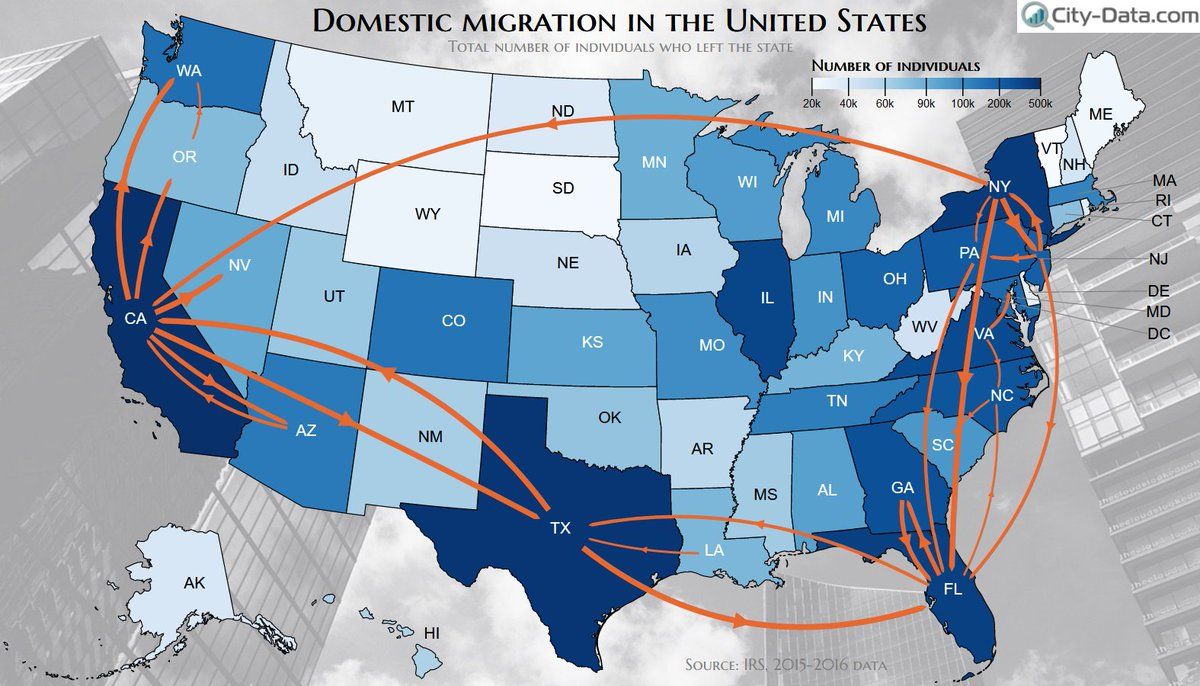
Especially in the U.S., it's common to move to a different state just for work opportunities.
With remote work, the things remaining that tie us to a place are family and friends.
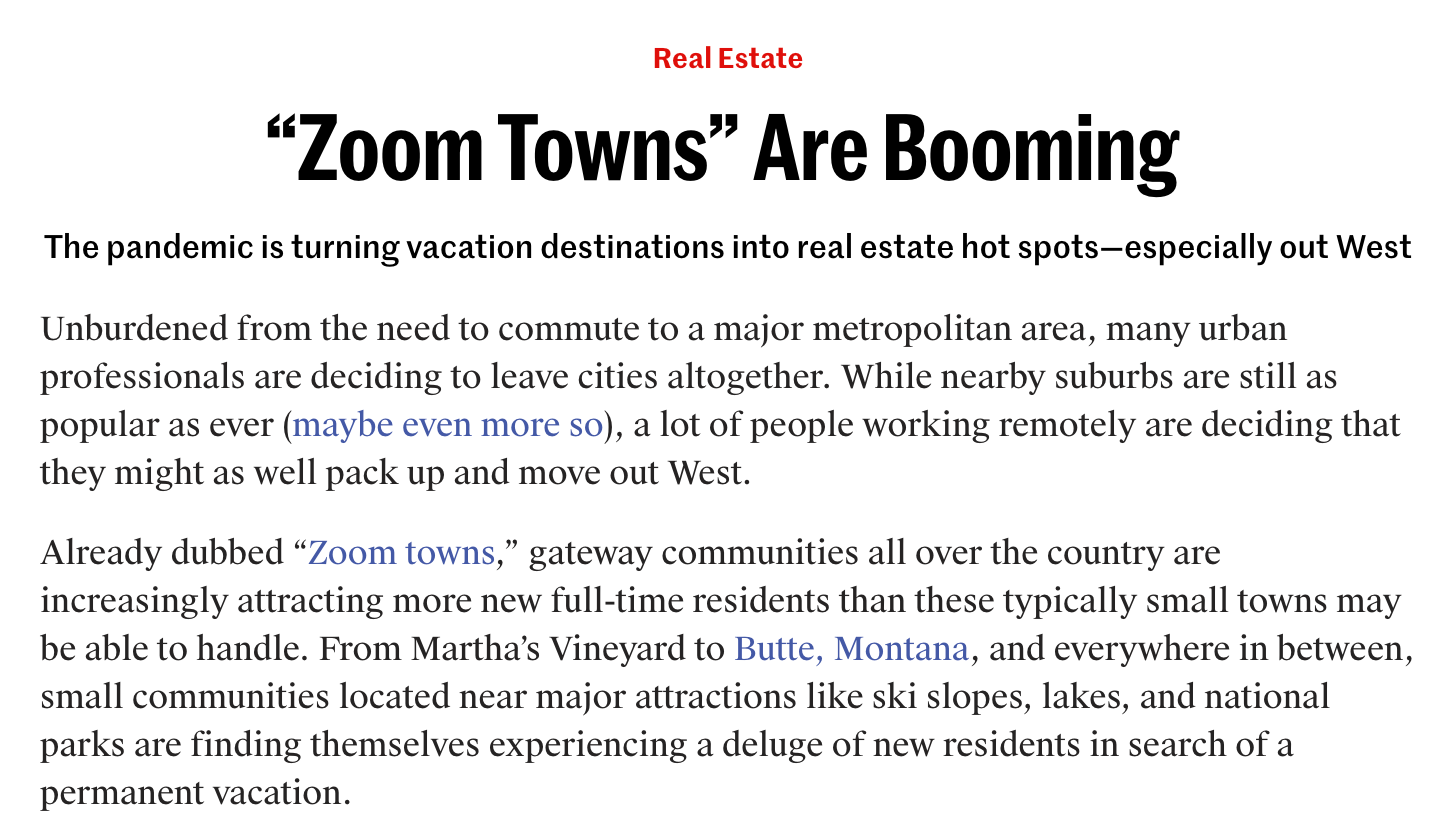
We're already seeing remote work based migration happening. The rise of "Zoom towns" in the U.S. has been widely reported: places outside of the big cities people are moving to now that they can work remotely (via video calling app Zoom).
What do retirees do?
To get a possible idea of what the regular population will do once they can work remotely, we can look at what people who retire do. In the U.S., 3 million people retire per year and 1 million of them relocate once they hit retirement and are not tied to their work anymore, so about one-third.
Now imagine how many people will relocate once they're not tied to a place by their work anymore. More on that later.
Where do they go? Predictably many retirees move South to be in warmer places so they can be outside more for leisure, the famous place for U.S. retirees of course being Florida, but also Southern California.
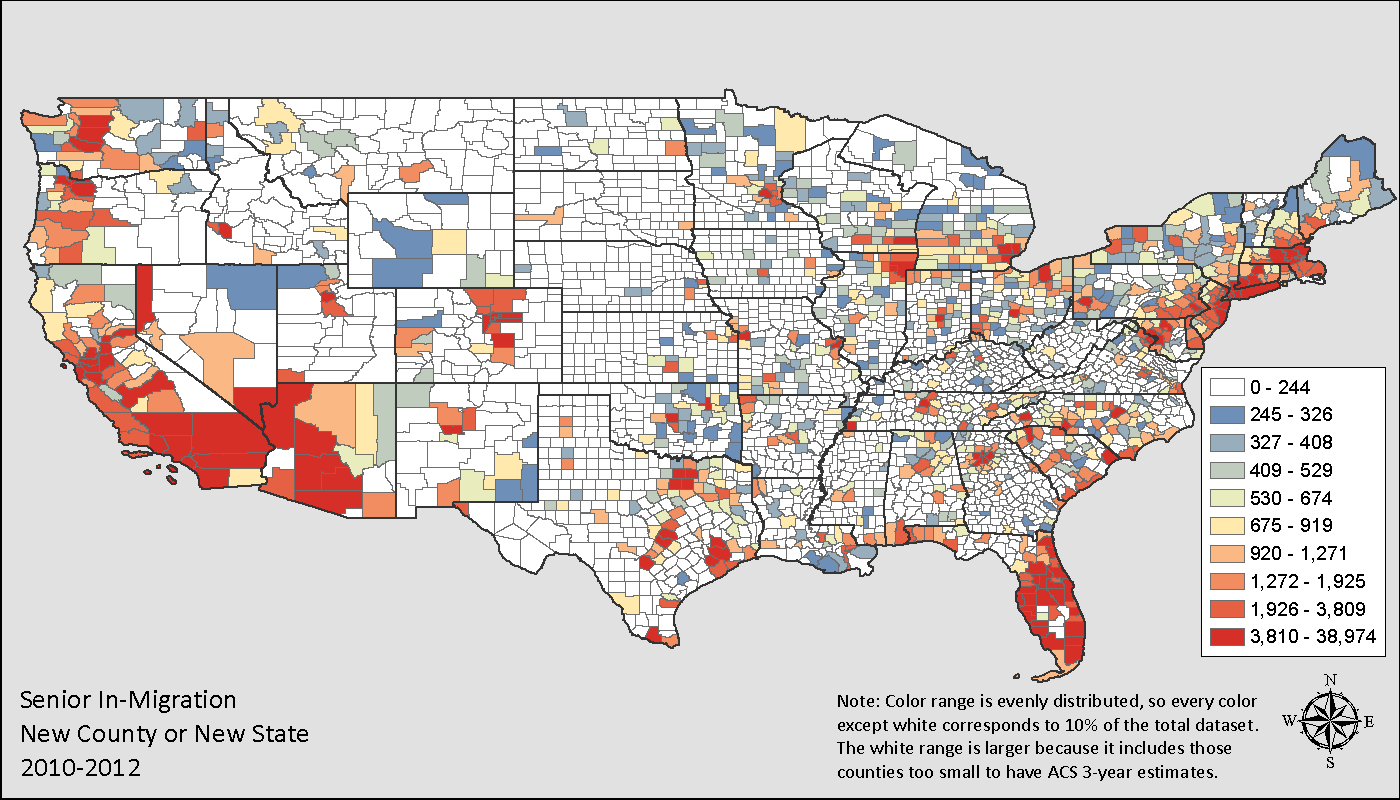
Many U.S. retirees also move abroad:

Leisure and interest-based destinations
Back to the remote workers in the Zoom towns. There are some early signs of where we're headed. Many of the Zoom towns in the U.S. are either 1) south: where it's warmer, or 2) outdoor or ski resorts: nice for outdoor sports.
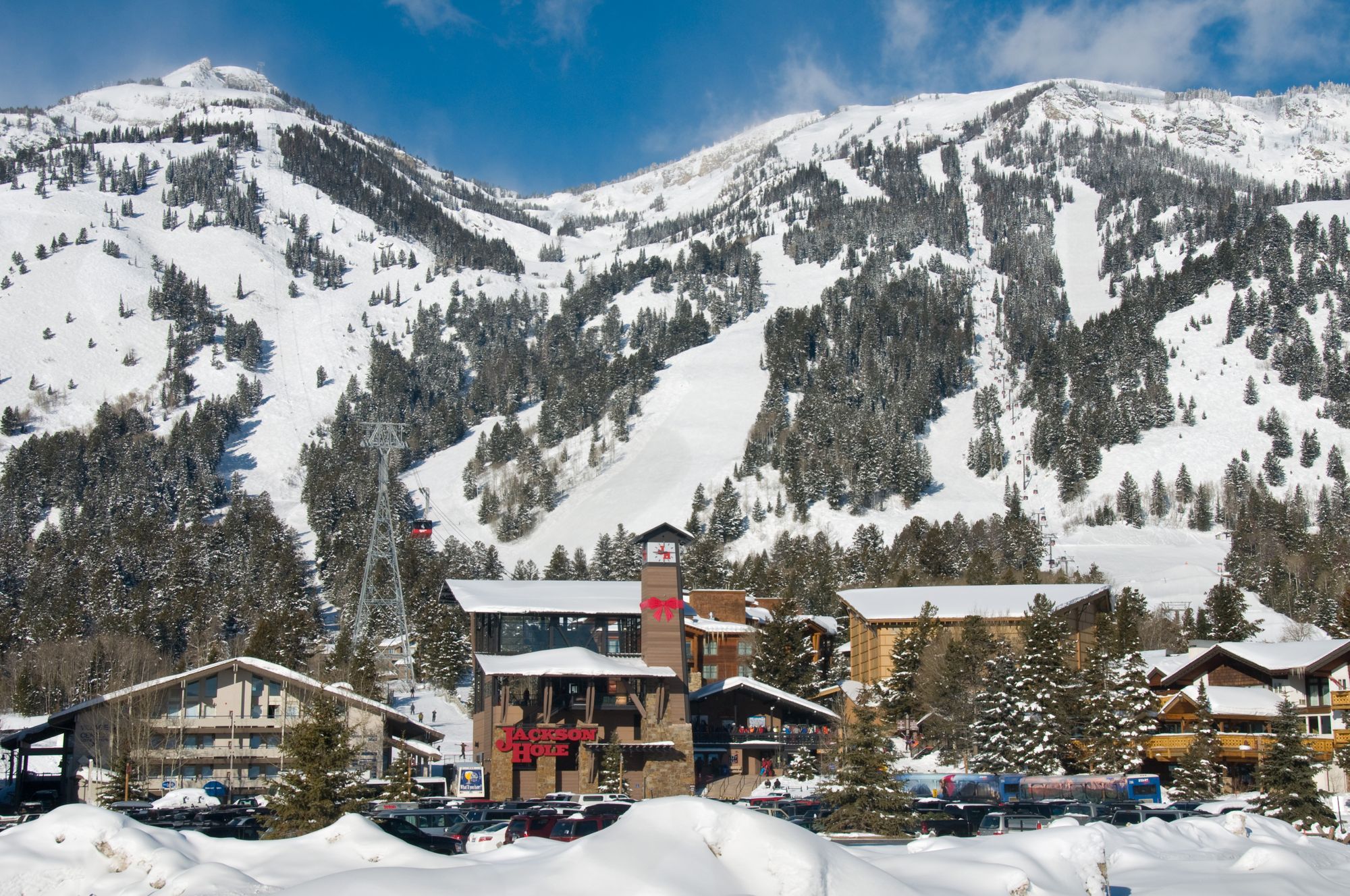
“We are seeing the biggest numbers for October this year (usually off season) and we can’t figure out why. It’s bigger than past years by a landslide” — Business owner in Jackson Hole Mountain Resort in Wyoming, US who owns and runs multiple hotels there
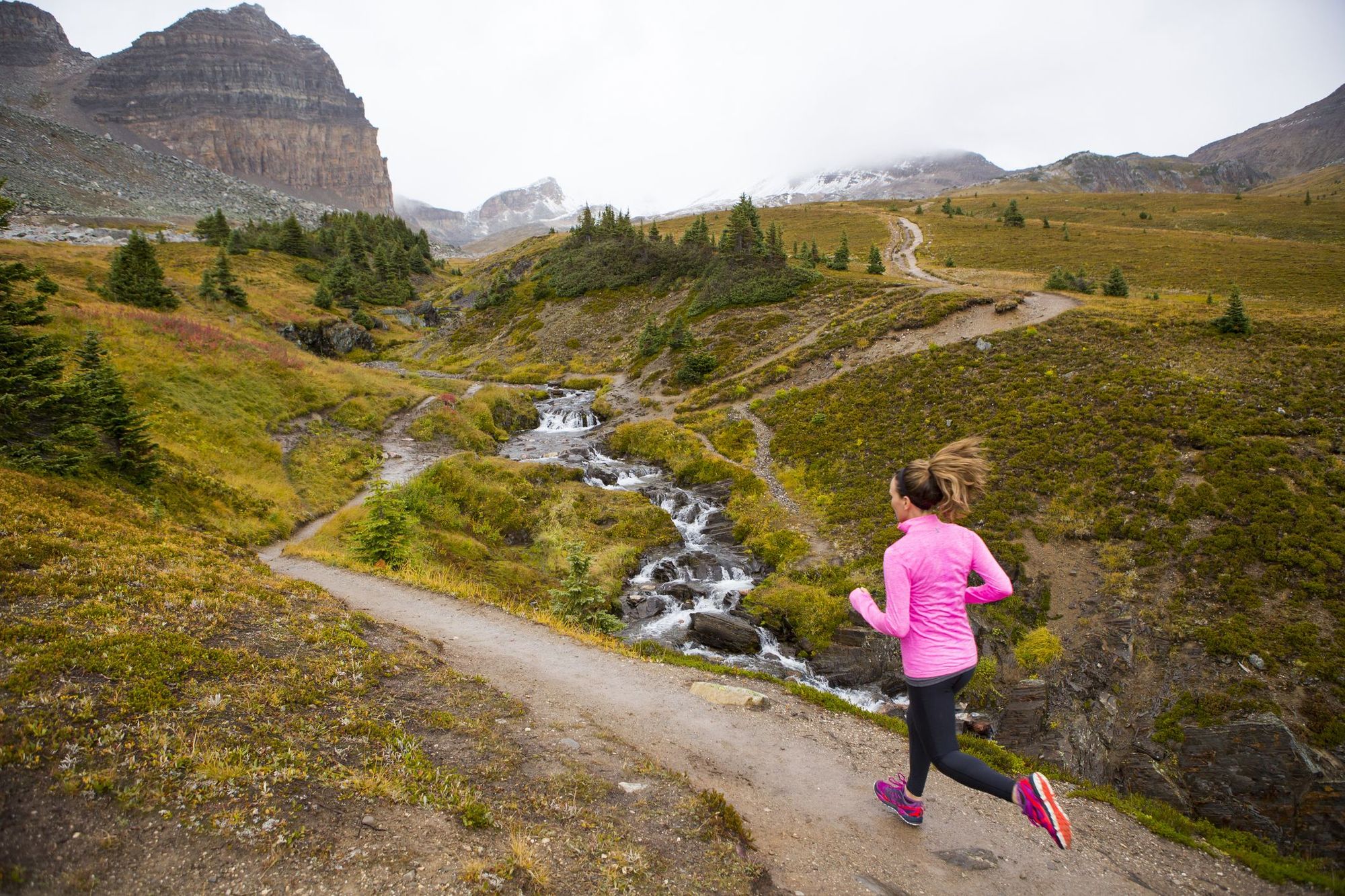
People into outdoor sports like running, hiking, cycling, kayaking etc. might move closer to nature.

Meanwhile, many of the top digital nomad destinations for Americans are surf towns on the beach in Mexico like Playa del Carmen and Cabo San Lucas. And the primary digital nomad spots worldwide right now is Canggu, a beach town in Bali.
The pattern here is that once work doesn't limit them anymore, many people will pick places based on their leisure activities.
Where traditionally holiday destinations for many meant hanging on the beach to recover from the stress of office work. If work becomes more less stressful as it goes remote, destinations can become more meaningful and active too: e.g. sports or other activity destinations.
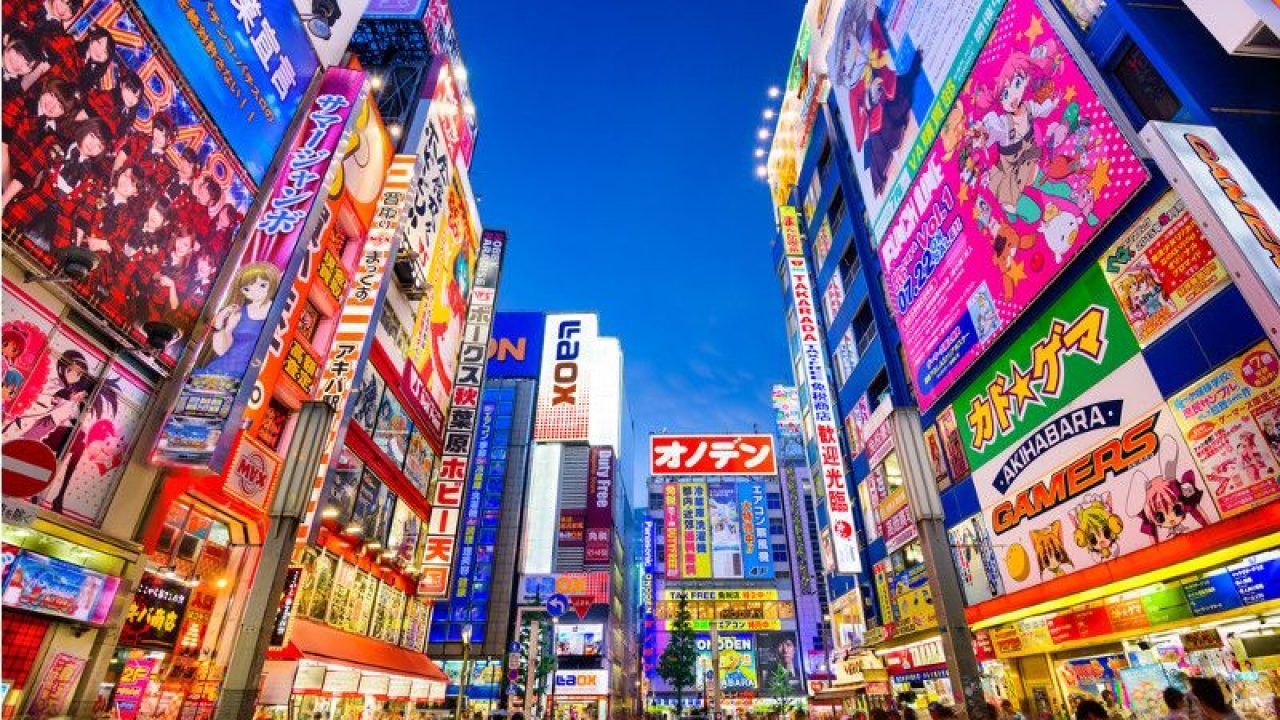
It's not just sports though. If a person's interest is anime (not me), they might enjoy living in Tokyo for a few years or longer being close to the anime scene, artists and fans.
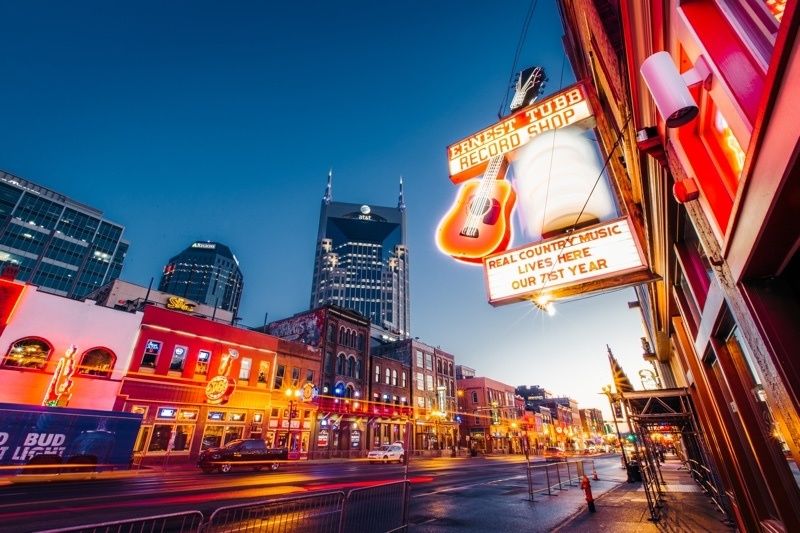
If a person is passionate about country music, they might enjoy living in Nashville for while being close to the music scene and live shows.
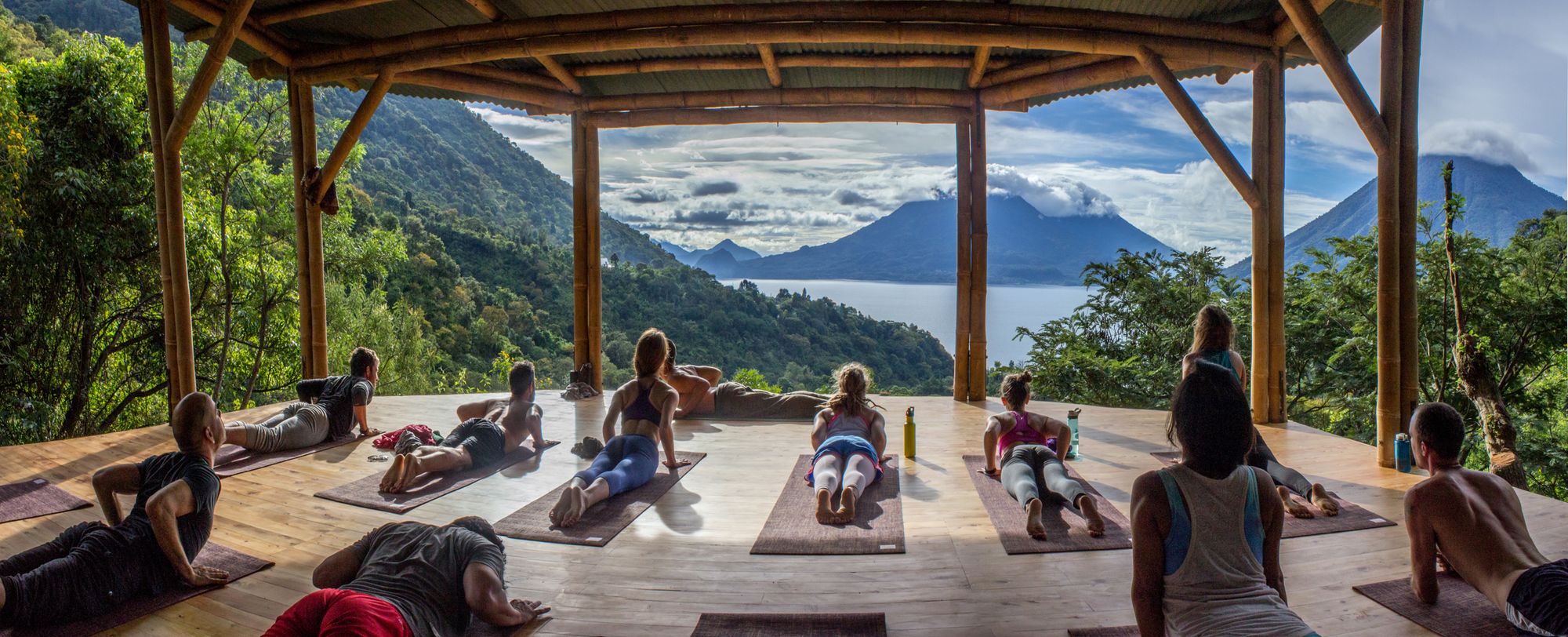
If you're into yoga and meditation, living in Ubud, Bali might work for you.

I have a friend who's now living on farms and eco villages around Portugal. He says they feel like small tribes centered around interests or ideals. Usually with at least some of their food supply coming from their own farm.
Community-based destinations
If your interests or activities one reason to relocate somewhere, community is another one.
"In a survey of 20,000 Americans, nearly half reported always or sometimes feeling lonely or left out. Young adults ages 18 to 22 are the loneliest generation of all, the survey found." - WebMD
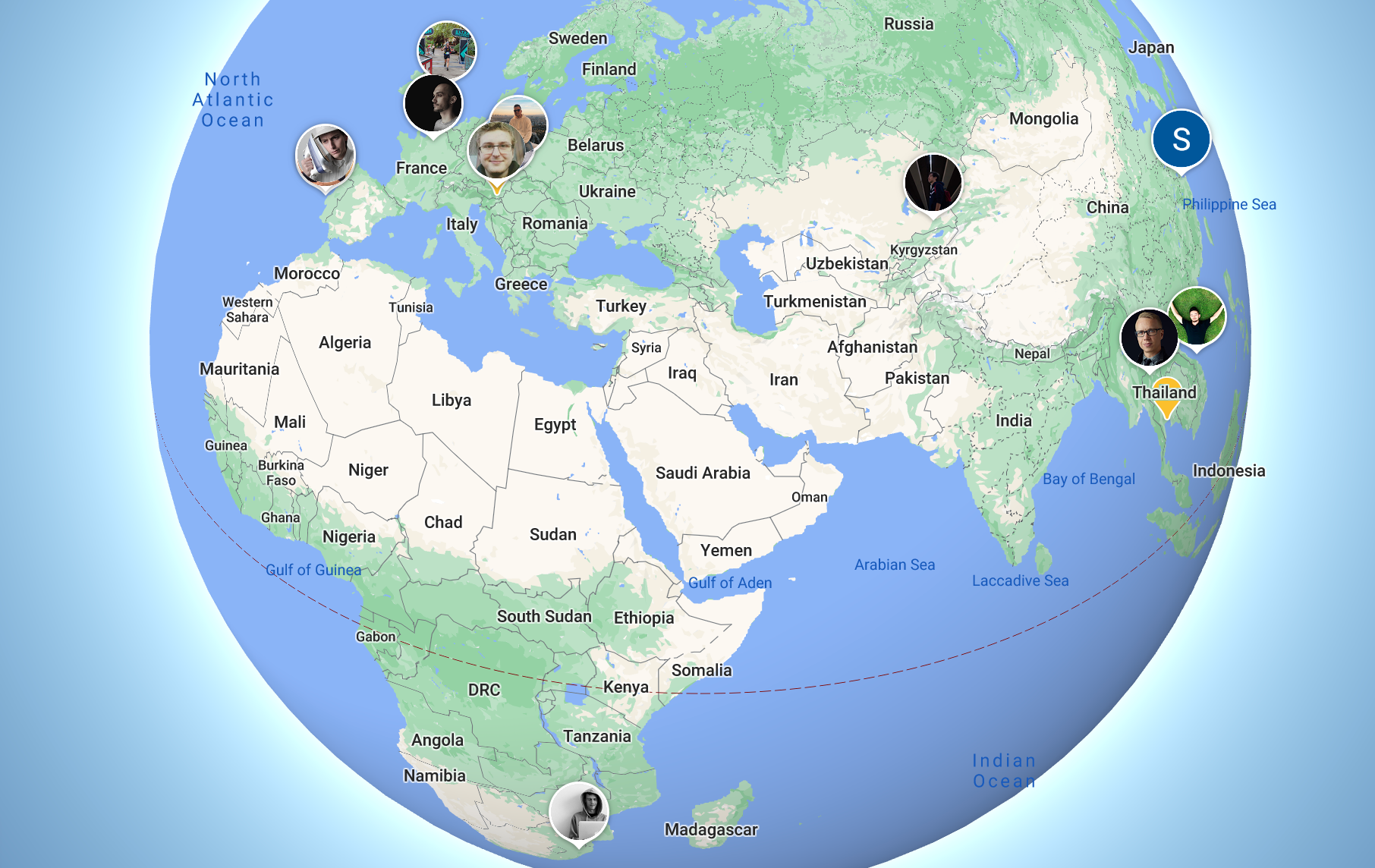
Many of us have friends from everywhere, also related to our interests. For example, I have lots of friends who are online entrepreneurs. None of these people I met in my home country. The challenge is that the relationships with these people become close to 100% online-only. And it makes sense as the biggest share of communication now happens online, via chat apps. As much as I love that we are in contact on a daily basis, I'd love it even more if we'd see each other in real life. And I'm probably not the only one.
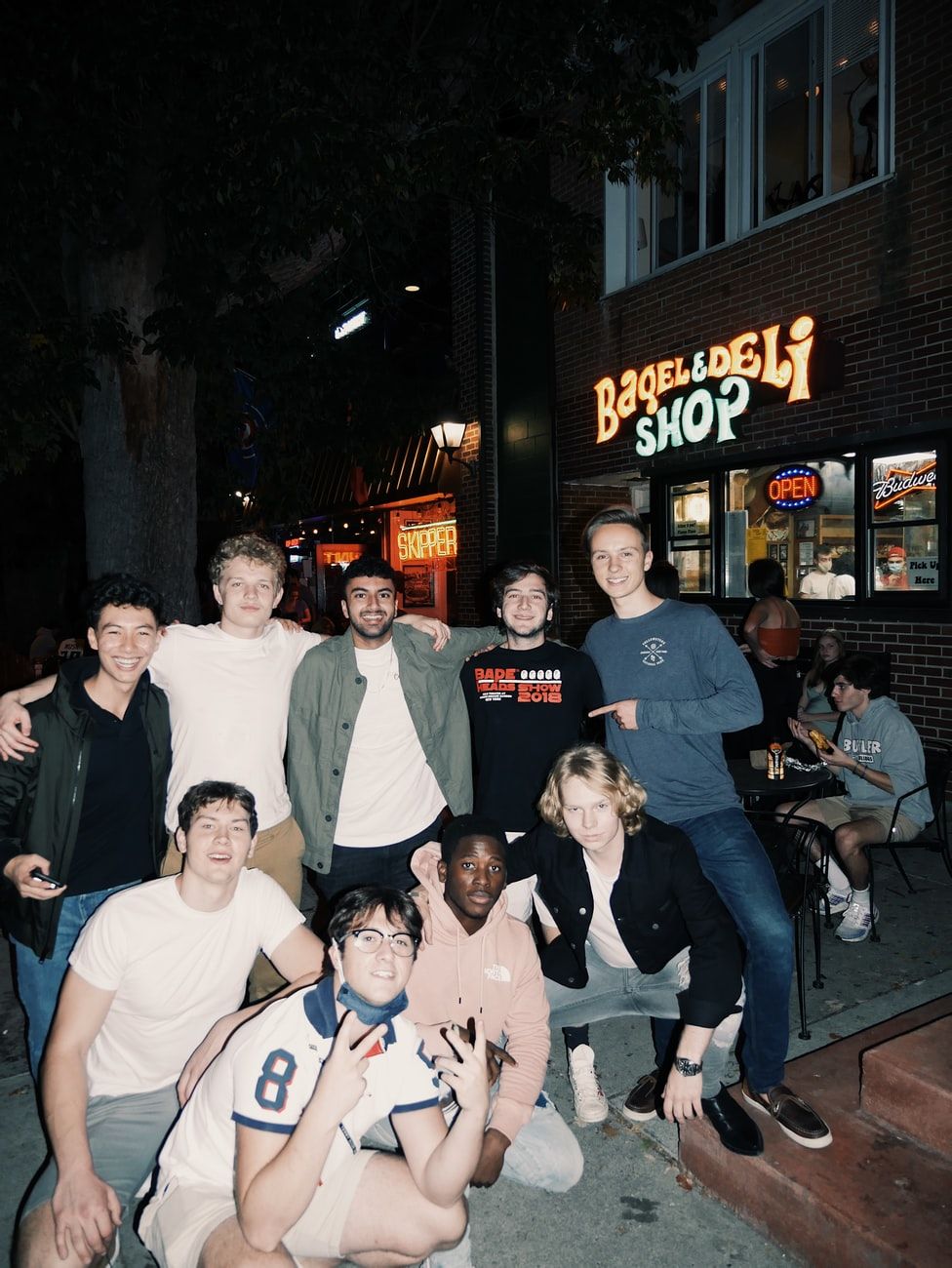
Remote work gives the ability (that is if you and your community of people wants it) to move closer together. And it's already happening for people not tied to a place by work.
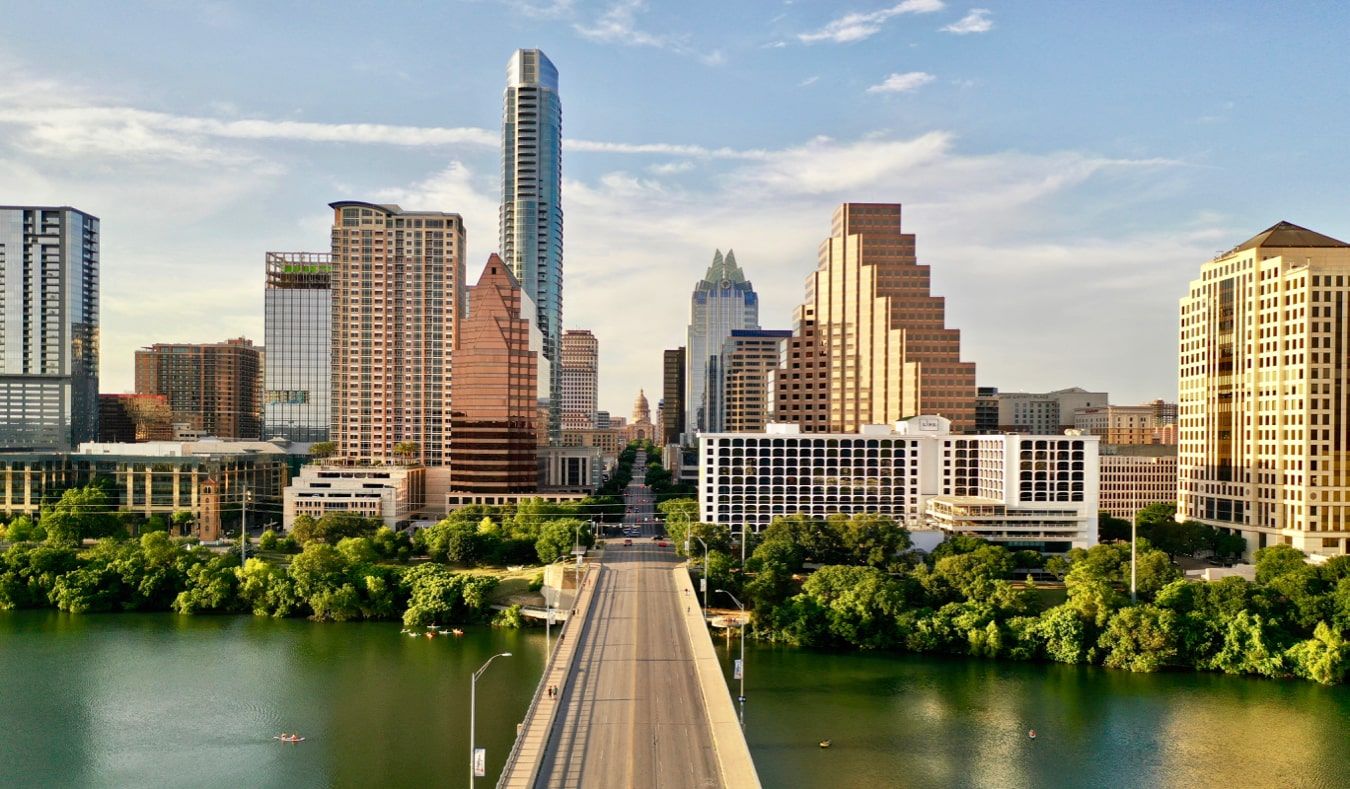
Joe Rogan moved from Los Angeles to Austin, Texas this year. And as an influential person in his community, he was able to bring a big share of his friends of comedians and other celebrities over to Austin too.
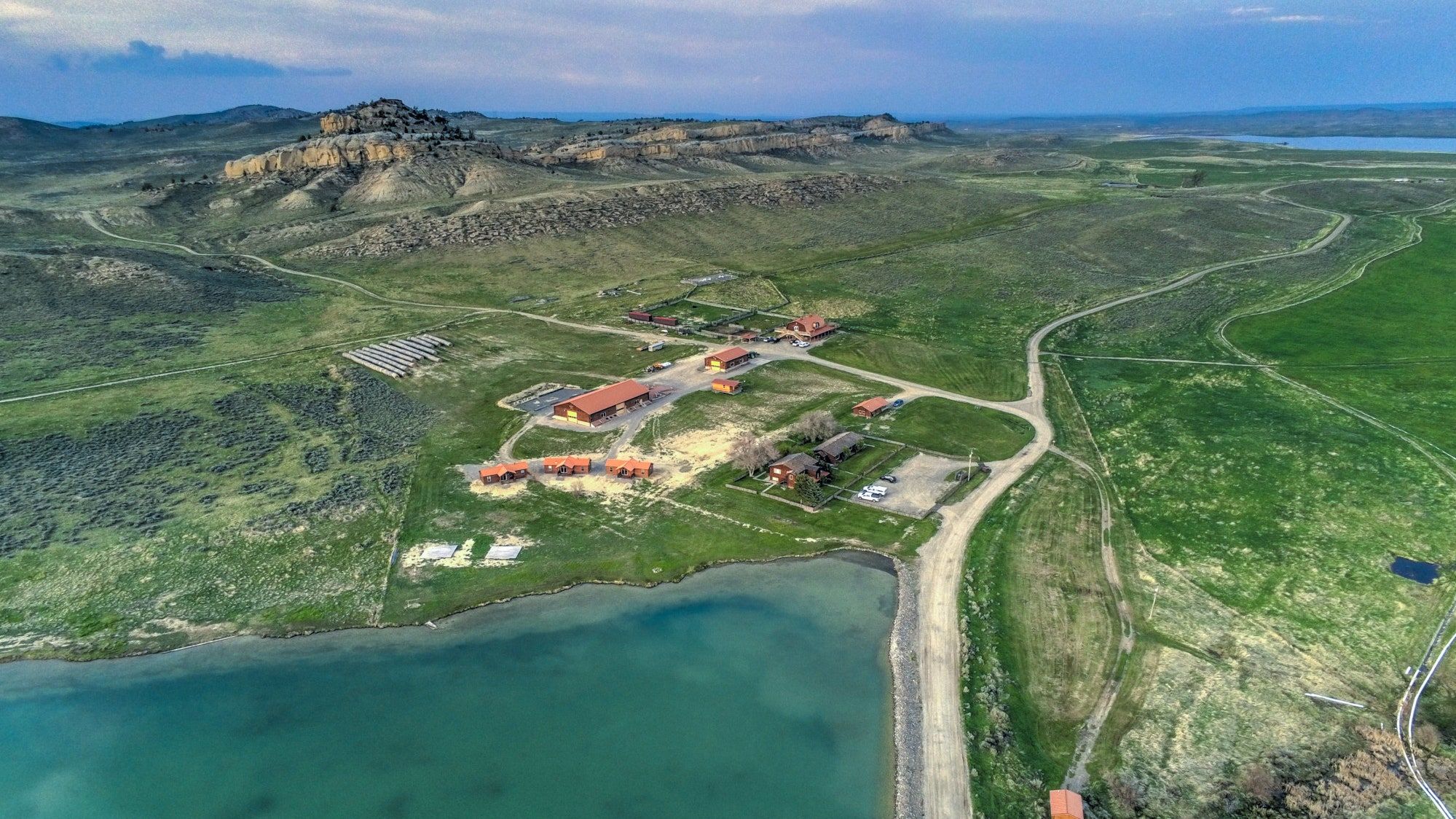
Kanye West bought a $14 million dollar, 6,000-acre ranch in Wyoming and is building an eco-village with a farm, houses and schools where his kids will go. And there's more famous people who are planning the same.

The founder of Bali's most popular coworking space Dojo bought land north from Canggu near the beach and is building his own village. It will focus on creative, entrepreneurial, maker-type people and will feature tens of bungalow-style apartments, coworking spaces, a maker space and since it's in Bali: probably lots of swimming pools.
The idea with all of these is the same: get out of cities that feel isolating (think of Los Angeles' giant sprawl) and move to a place where you can be physically closer to your community of people: being able to walk to each other, instead of an hour car ride away.
Most of us don't have the fame or money to buy land and build a village though.
Luckily, we don't need to build a village to get the same benefits of community. Simply moving to places together, maybe in the same neighborhood, with people you care about is the point.
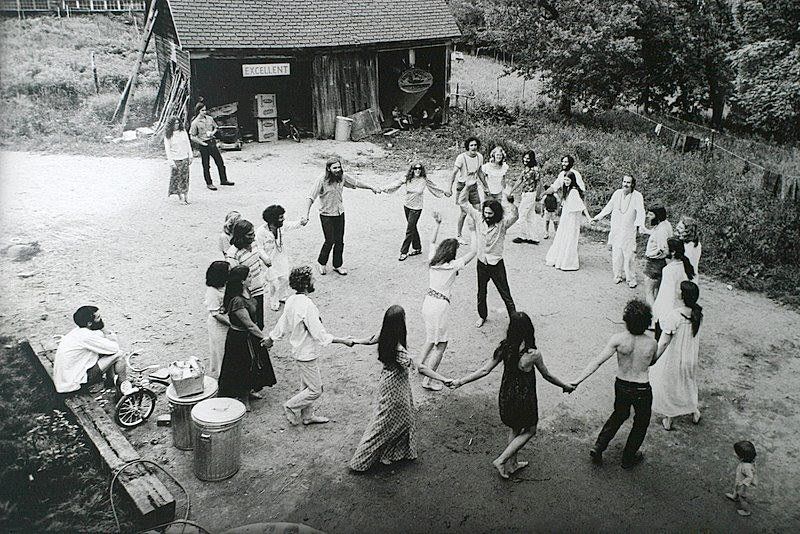
And if the communes of the 1960s taught us anything: it's that trying to re-invent society by building a new mini society in a village usually doesn't work out and sometimes even ends bad:
“But the problem is this: I can’t stay out here forever, neither physically nor mentally. As much as I might want to live in the woods where my phone doesn’t work, or shun newspapers with Michael Weiss at his cabin in the Catskills, or devote my life to contemplating potatoes in Epicurus’s garden, total renunciation would be a mistake. The story of the communes teaches me that there is no escaping the political fabric of the world [...] The world needs my participation now more than ever. Again it is not a question of whether, but how.”
― Jenny Odell, How to Do Nothing: Resisting the Attention Economy
The 1960s teaches us we maybe the point isn't to try build entirely new artificially designed communities from the ground up, but instead iterate on the places that organically rise up for remote workers, improve them and solve the problems remote workers there have.
Facilitating remote work destinations
We know that many businesses didn't work out in the previous nomad wave. Many businesses simply didn't have enough nomads to cater to, and the nomads that they found didn't have enough money to spend.
So what businesses would work in a new reality of remote work destinations?
If we assume that the volume of people relocating to, or visiting remote work hubs will be 10x or 100x higher than during the nomad wave. The diversity in people and also income ranges will increase. That means many of the ideas that failed during the previous nomad wave (coworking, coliving etc.), might finally work once the mainstream joins, as there'll be more people and people with higher incomes available to market to.

Traditional businesses can profit from the remote work wave too. Especially the hospitality industry. Instead of nightly stays, hotels are already offering long-term stays, and considering adapting their rooms with kitchens and offering Airbnb-style suites. If they like, coffee places can adapt to become a place where remote workers can do their work and socialize. Related to socializing, local companies that offer activities like sports and trips can target remote workers who are new to a place to quickly immerse themselves.

As remote work becomes the norm and employees demand to relocate, BigTech giants like Google, Facebook, Apple, Netflix, Amazon and Microsoft may start facilitating this and building campuses around the world. Think a tech campus in snow resort Aspen, CO, or in Playa Del Carmen, Mexico or in Canggu, Bali.
We know Google already has been building coworking spaces all around the world (currently in London, Madrid, Sao Paulo, Seoul, Tel Aviv, Tokyo and Warsaw) , that are free to use (and they already call it Google Campus). Next would be actual campuses with housing and other living facilities.
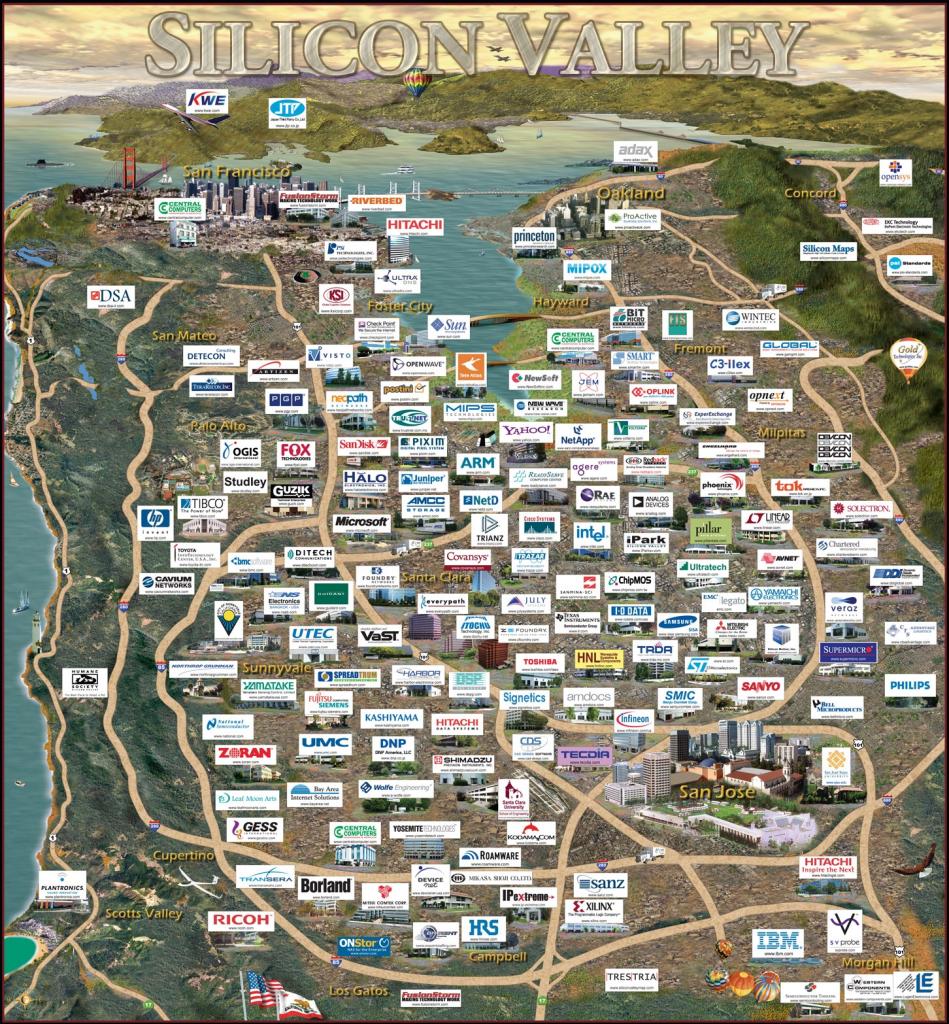
With BigTech opening campuses there, it can ignite ecosystems around these destinations with smaller startups moving to or being founded on its edges. Just like the university campus of Stanford made Silicon Valley possible:
"More than 50% of Silicon Valley product is due to companies started by Stanford alumni" - WIPO
This fits with the common idea that the next Silicon Valley won't be a single place, but it will be distributed around the world, and I'd argue in these future remote work destinations.
Especially since immigration to the U.S. for startup founders has become a lot more difficult in recent years:
The secret to the US economy's huge innovative success in one graph: the global flows of inventors into and out of various countries. Reversing this is going to end up be a very bad idea for the long-term success for US startups & the economy in general. https://t.co/kOZYEkMkjO pic.twitter.com/qL14XHsdn4
— Ethan Mollick (@emollick) October 26, 2020
The role of government
One of the primary challenges digital nomads faced was getting kicked out of a country after 30, 60 or 90 days based on their tourist visa. Digital nomads get so much flack for working on tourist visas, usually by people who never did it themselves. If they'd do it themselves, they'd realize getting a longer visa is a monumental pain in most places. It usually means navigating a bureaucratic law system in a foreign country, often a developing country where the process is rife with corruption, bribes and uncertainty. If it'd was easy, most digital nomads wouldn't be working on tourist visas right now.
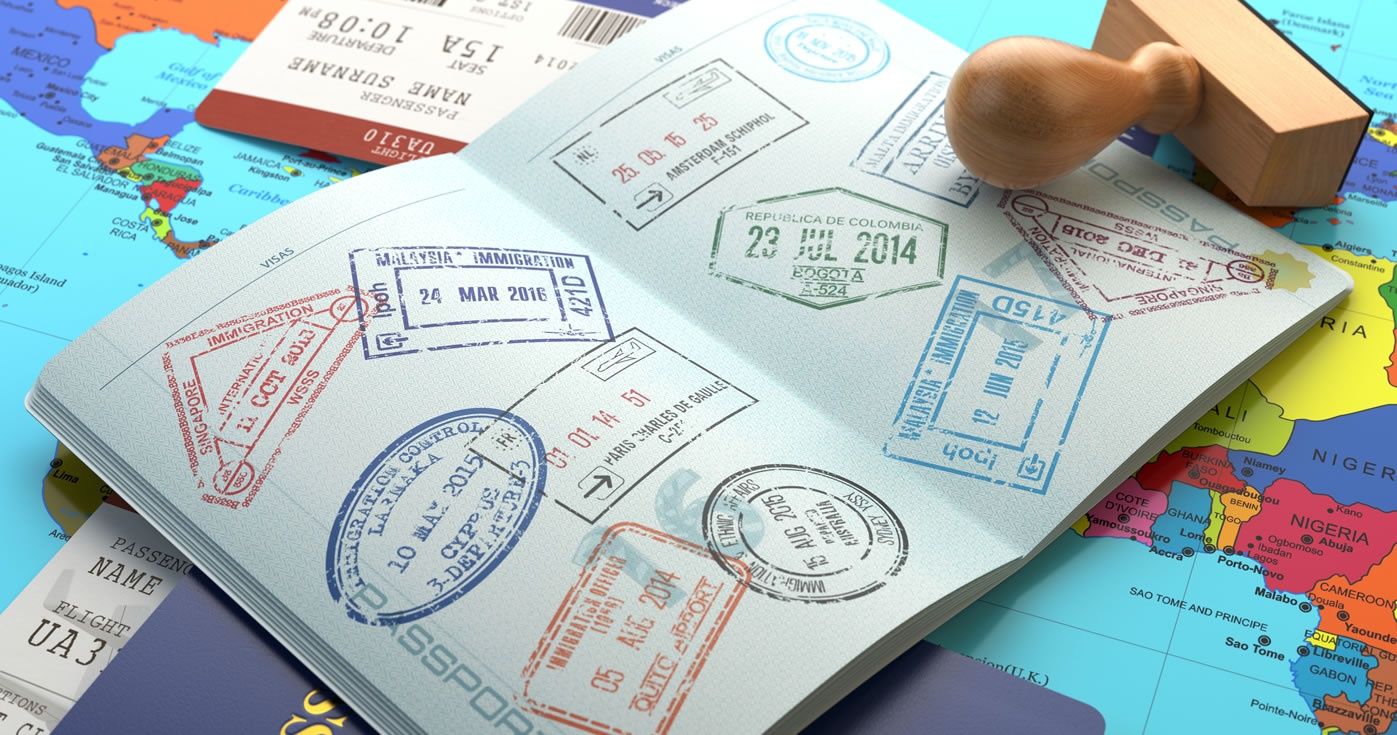
One of the reasons you see digital nomads still hop around every 30/60/90 days, is because that's the visa limit. If there'd be no visa limit, I believe they'd stay much longer.
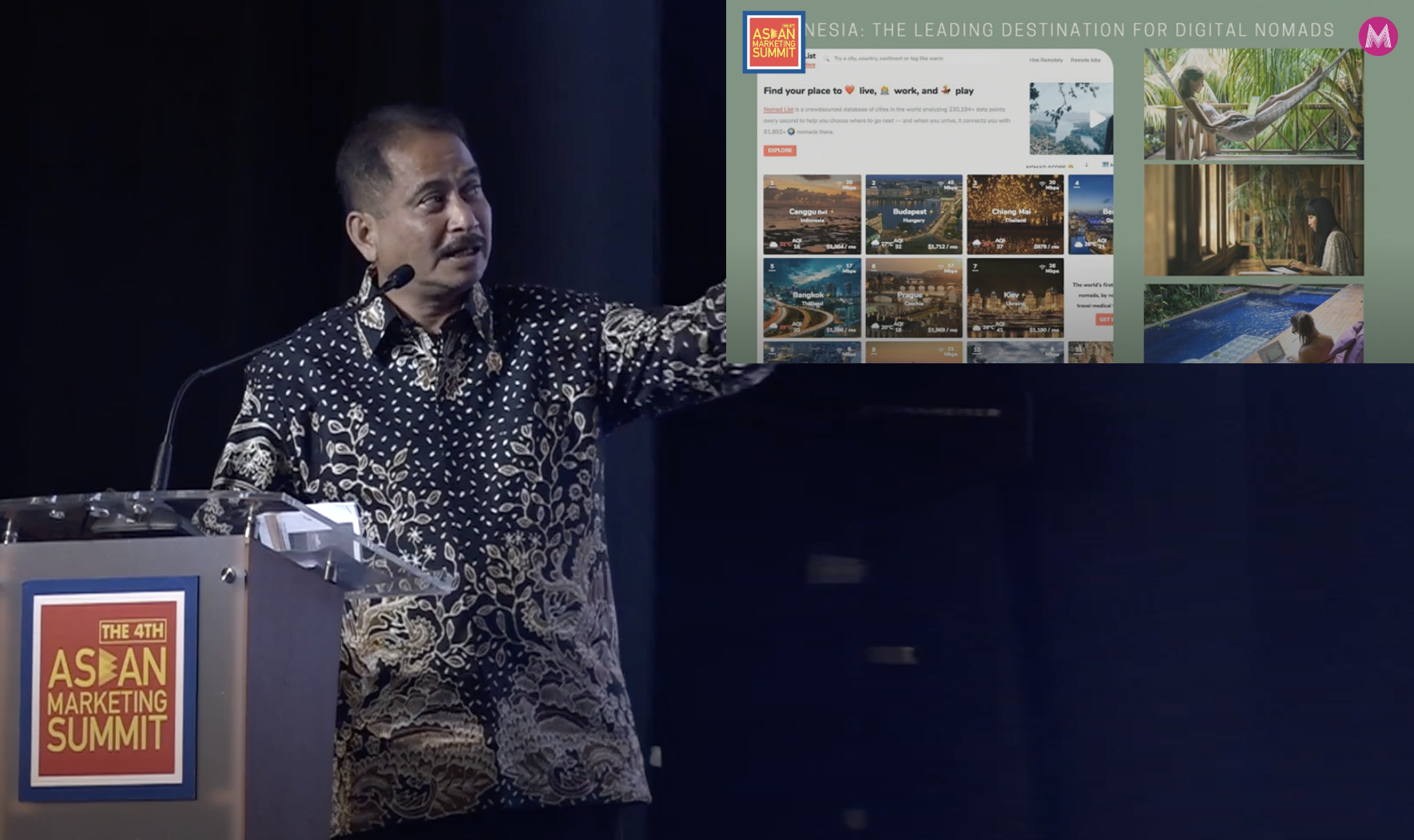
There's some developments here too though, and there have been for awhile. Right now most governments "know of" digital nomads and remote workers. And many have spoken about it, usually positive. Bali's governor and Bali's tourism board, Indonesia's minister of tourism and even Indonesia's president Joko Widodo have all spoken out positively about attracting digital nomads and foreign tech workers as a strategy to get more foreign spending and as a transfer of technological skills to locals.
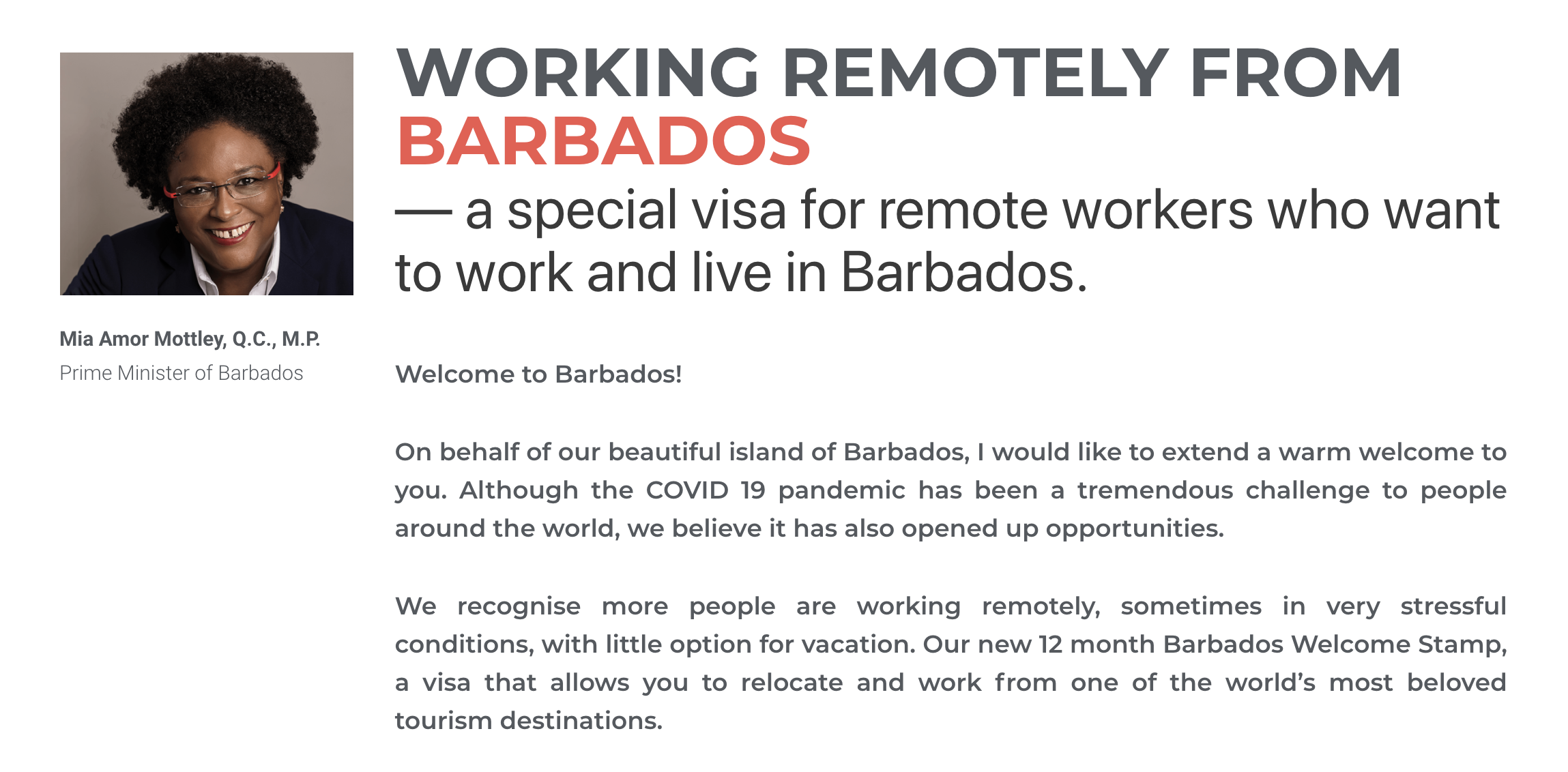
Many countries now have programs to attract remote workers: Portugal, Estonia, Bermuda, Barbados and Georgia.
The opportunities for cities and countries are big if they can create a process by which they can attract high-skilled high-income remote workers to work in their countries for long-term. High-income so that money flows into their local economies, high-skilled because it'll mean transfer of skills to locals is possible.
The changes necessary are small compared to the opportunities it gives: create a remote worker visa that can be requested online, assess people's income, work and skills, and allow at least a 6 month to 1-year stay with an option to extend it to 5 or 10 years, and some route to the traditional permanent residency and after citizenship.
Right now work permits are made for foreign people getting a local job offer. Remote workers don't need a job offer, they already have a remote job or run their own company. All they need is the legal rights to work in your country, and be able to stay for long-term. The reason for work permits was to avoid competition of foreigners with the local work force, but 99% of remote workers don't even participate in the local market as they work for foreign companies remotely.
Cities can make more money on remote workers than tourists
Nacho Rodriguez is an entrepreneur who works with the government of the Spanish Canary Islands to attract remote workers. He told me it makes a lot more economic sense for governments to attract remote workers than tourists:
An average tourist in Europe goes on a trip for 5.2 nights and spends $70 per day or $356 per trip.
Meanwhile, a high-income tech worker from the U.S. or London makes ~$150,000/year. If they'd relocate to the Canary Islands and spend just half of that, that's $75k/year put into the local economy. That amount of money can create 3 local jobs at local average wages. Additionally, tax is paid on that income if they relocate.
The average tourist spending of $70/day, is $25,000/year. At an average tourist trip length of 5.2 nights, that means hosting 210 tourists makes the same amount of money for the Canary Islands as a single remote worker can bring in.
(Calculation: $70*365.25 days=$25,567/y; 1 trip is 5.2 days; 365.25 days / 5.2 days = 70 tourists/y; 1 remote worker spends 5o% of their income = $75,000/y; $75,000/y remote worker income / $25,567/y tourist income ~= 3; 3 * 7o tourists = 210 tourists)
Even if we estimate more conservatively, where a remote worker spends just $25,000/year, that's still the same amount of money as hosting 70 tourists.
The Canary Islands get 15 million visitors per year. They could make the same money with 100,000 to 200,000 remote workers there.
A remote worker can live more like a local as they stay in the place for months or years renting locally, instead of the short tourist staying in Airbnbs, resulting in less low-quality touristic areas. Caveat is areas will focus on foreign remote workers, which probably means more hipster-type areas. Regardless, places change for foreigners. It depends which way you prefer.
Personally, I think long-term remote workers make better visitors economically and behaviorally than short-term tourists. But I'm biased.
Remote work will boost mixed zoning
Apart from changing where we move to, remote work will also change the neighborhoods we already live in.
When I grew up in the nineties, in our town's street we had a bakery, a butcher, a library and even a blacksmith. That meant you could walk to what you needed in less than a minute.

The bakery and butcher got replaced by a big supermarket, and the blacksmith was shutdown when hardware stores opened up. Both requiring a ~30 minute walk or ~15 minute drive.
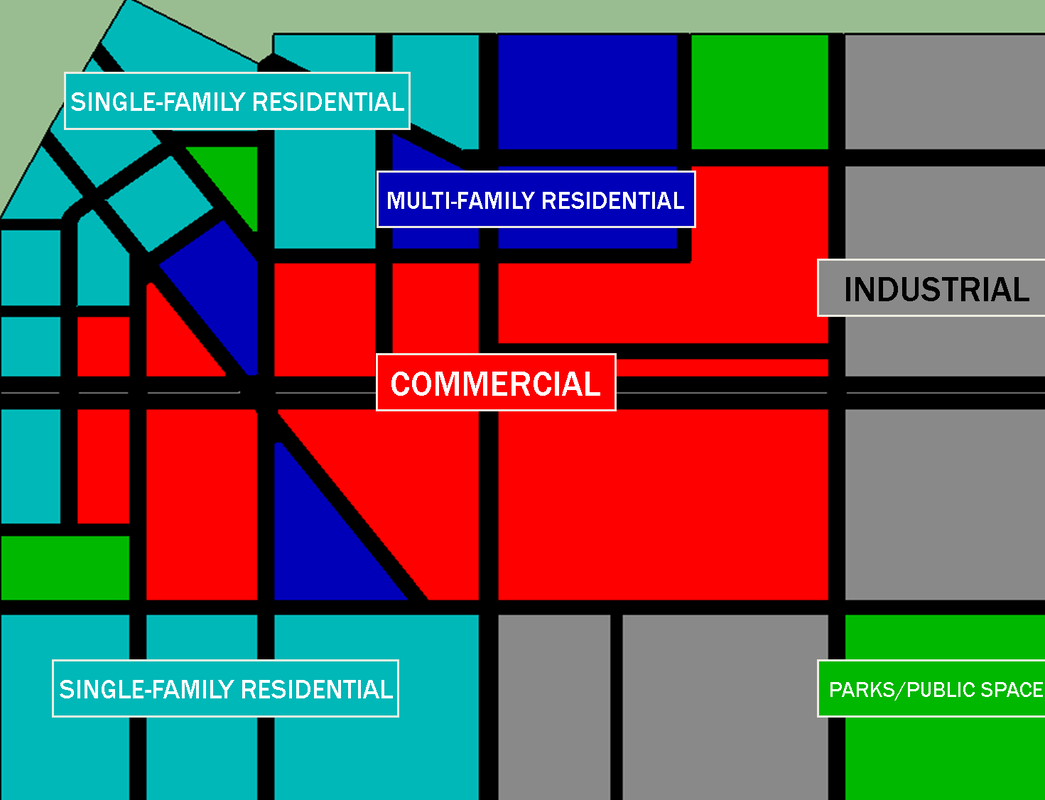
As much as U.S. is famous for separated zoning, this is a worldwide phenomenon since the nineties: in many places in the last decades we've moved from a healthy mix of homes and shops in a neighborhood to separating residential and commercial. Instead we now have:
- Residential neighborhoods where people come home to after work and sleep and then leave back to work the next day. There's no commerce like it used to.
- Business districts with commercial zoning where people come to shop and work in the day, which then becomes desolate ghost towns in the evening
- A lot of car traffic because the office, shops and our home is all separated and now we need to drive to everything

As many experienced during the lockdowns of 2020, where people were suddenly spending all day at home, in their neighborhoods. The local feeling of community increased as people had time to go outside for walks and run into their neighbors. Neighborhoods became places to live again, not just sleep.
With people working remotely, we'll also see a demand for neighborhoods to become more livable for remote workers. That means residents will demand coworkings and cafes to work from and to meet others in the area. With people spending more time around their house, there'll be an increase in demand for local leisure activities. Locals parks will become more important. As will be local daycare facilities for kids.
That means remote work will enable a push for mixed zoning, and we'll have less far away commuting and cars everywhere.
Education
As millions relocate and work remotely, many will bring their families. That means there'll be a need for high quality schooling from young kids to university students. Lots of places don't have great schools though.
There's a lot of innovation happening in this space now with lots of startups like Galileo offering online education for kids to teenagers.

The problem is that online education and homeschooling lacks the most important part of school I think: an offline social environment with other kids.
A solution to that I think, which will take time to build (and maybe you can help build it) is having a mix of 1) centralized high quality online schooling, executed by an internationally trusted institution like Harvard, 2) practical group classes to do the coursework ran by local schools affiliated to and certified by the trusted institution.
That means we can have 1) the benefits of high quality online education in remote places where schools might not be so great, with 2) the benefits of offline education in local classes where kids also learn the social skills from being in a group.
How many will actually relocate due to remote work?
We know that the majority of the mainstream will be able to work remotely now or in the next few years, but how many will actually use that to their benefit and relocate?
To get a possible idea of what the regular population will do once they can work remotely, we can look at what people who retire do. In the U.S., 3 million people retire per year and 1 million of them relocate once they hit retirement and are not tied to their work anymore, so about one-third.
But retirees might be more tied to a place: 1) they might need care from their kids and 2) they might've already built up life long communities around them, longer than their younger people in the middle of their careers.
Thanks to a recent Upwork study, we actually have some data on it now too:
"Anywhere from 14 to 23 million Americans are planning to move as a result of remote work. Combined with those who are moving regardless of remote work, near-term migration rates may be three to four times what they normally are." - Upwork study in October 2020
I did my own survey too; it's skewed since the people who follow me are mostly in tech and startups. From my followers, almost 57% of people have relocated or are planning to relocate now that they can work remotely.
Are you planning to relocate because you can work remotely now?
— (@levelsio) November 1, 2020
The combined work force of the U.S., Canada and EU is 400 million people. If 50% of those will work remotely, that's 200 million people. If 20% of those relocate, that's already 40 million people. And that's not including their dependents like partners and family, which could double that number. And then we're not even counting the rest of the world where remote work is also rapidly being adopted.
If we transpose that on the entire world, if 50% of the global work force of 3 billion people will work remotely, and 20% relocate because of that, that's 300 million people.
Even if we go extremely conservative and assume only 10% of the global work force of 3 billion people will work remotely, and 20% relocate because of that, that's already 60 million people.
The greatest migration in history

The largest migration in human history, the Great Atlantic Migration, saw 37 million Europeans move to the United States in the 19th and 20th century.
As remote work becomes accessible to the global workforce in the next decade, we'll have far more than the 37 million people who relocated in the Great Atlantic Migration, as they're not tied to places by office work anymore, making this the greatest migration in human history. Even if it's relocating inside big countries like the U.S, it's still migration.
That makes this this the largest human migration in history, due to the adoption of remote work.
Next week we'll be pushing a little bit further than in the next decade to see how remote work will change society after that, including robots and universal basic income.
Let me know your ideas on Twitter and I'll implement them in the next post! And if you liked it share this tweet:
🌎🌍🌏 The greatest human migration in history will happen in the next decade
— (@levelsio) November 12, 2020
Here's the first part of my 5-part series on how remote work will transform society in the next ten yearshttps://t.co/0QlWlvV8ww
P.S. I'm on Twitter too if you'd like to follow more of my stories. And I wrote a book called MAKE about building startups without funding. See a list of my stories or contact me. To get an alert when I write a new blog post, you can subscribe below: